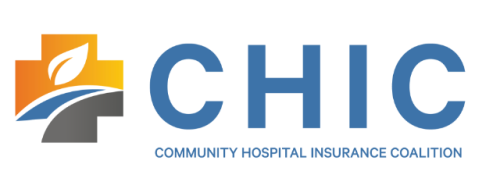Telehealth Coverage for HDHPs Extended
OSHA Announces Enforcement Effort for High-hazard Health Care Facilities
EEOC Guidance on COVID-19 and Disability Under the ADA
Telehealth Coverage for HDHPs Extended
A spending bill signed into law on March 15, 2022, extends the ability of high-deductible health plans (HDHPs) to provide benefits for telehealth or other remote care services before plan deductibles have been met without jeopardizing health savings account (HSA) eligibility. This extension applies to any telehealth services from April 2022 through the end of the year.
Background
HSA contribution rules limit the types of health coverage that eligible individuals may have. As a general rule, telemedicine programs that provide free or reduced-cost medical benefits before the HDHP deductible is satisfied are disqualifying coverage for purposes of HSA eligibility.
However, effective in 2020, for plan years beginning before 2022, the Coronavirus Aid, Relief and Economic Security Act (CARES Act) allowed HDHPs to provide benefits for telehealth or other remote care services before plan deductibles have been met. This meant that HDHPs could provide coverage for telehealth services before the minimum deductible was reached without jeopardizing plan participants’ eligibility for HSA contributions. This rule expired for plan years beginning in 2022.
Impact of the Extension
Under the extension, HDHPs may choose to waive the deductible for any telehealth services from April 2022 through the end of 2022 without causing participants to lose HSA eligibility. This provision is optional; HDHPs can continue to choose to apply any telehealth services toward the deductible.
Note that telemedicine services provided between Jan. 1, 2022, and April 1, 2022, must still be counted toward the HDHP deductible to avoid impacting participants’ eligibility for HSA contributions.
OSHA Announces Enforcement Effort for High-hazard Health Care Facilities
EEOC Guidance on COVID-19 and Disability Under the ADA
On Dec. 14, 2021, the Equal Employment Opportunity Commission (EEOC) issued 14 new answers to frequently asked questions (FAQs) about what employers may or may not do to comply with federal fair employment laws during the COVID-19 pandemic. The new FAQs specifically address the definition of “disability” and how to determine whether an individual with COVID-19 meets it under the Americans with Disabilities Act (ADA).
ADA and COVID-19 Background
Under the ADA, employers with 15 or more employees may face liability if they take certain adverse employment actions against individuals who have been diagnosed with or are believed to have COVID-19. The ADA also requires these employers to provide reasonable accommodations for individuals with disabilities, including any related to COVID-19. Smaller employers may be subject to similar rules under applicable state or local law.
Three-Part Definition
The EEOC’s new FAQs clarify that COVID-19 may qualify an individual for ADA protection based on “actual” disability, a “record of” disability or being “regarded as” having a disability. Employers must perform an individualized assessment to determine whether a specific employee’s COVID-19 meets any of these definitions.
Disability Types
COVID-19 is an actual disability if it is a physical or mental impairment that “substantially limits one or more major life activities.” The FAQs provide examples of situations in which an individual with COVID-19 would (and would not) meet this definition.
The FAQs also explain and provide examples illustrating how certain adverse employment actions may violate the ADA even if an individual only had COVID-19 in the past (“record of” disability) or is mistakenly believed to have COVID-19 (“regarded as” having a disability).


